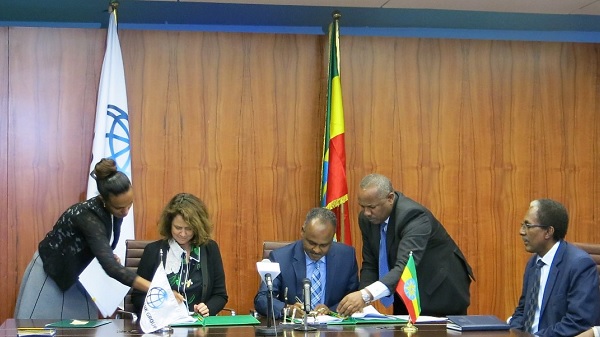
WASHINGTON, D.C. (World Bank)–The World Bank today approved an International Development Association (IDA) credit of $170 million to boost the contribution of the livestock and fisheries sectors to Ethiopia’s economy.
“The Livestock and Fisheries Sector Development Project will help 1.2 million farm households who largely depend on livestock-keeping and fishing, with the skills and tools they need to considerably increase the volume and quality of their produce, which means that they will earn substantially more. For instance, dairy subsistence farmers could increase their milk production by 1.5 time and dairy cooperatives triple the volume of milk they collect and sale, while more specialized farmers could double daily egg production and cultivate five times more fish,” said Carolyn Turk, World Bank Country Director for Ethiopia, Sudan and South Sudan. “Furthermore, by ensuring that disadvantaged groups such as women and unemployed youth are included, the project will provide them with economic opportunities that will significantly improve their livelihoods,” she added.
Ethiopia has the largest livestock population in Africa and the fifth largest in the world. Despite receiving limited public investments over the years, the livestock sector continues to be a major source of foreign exchange earnings and accounts for nearly 40 percent of the country’s agricultural GDP. The Government of Ethiopia has identified the livestock and fisheries sectors as essential aspects of its journey to reach the middle-income country status. The sectors will also contribute to the country’s green growth priorities.
“While Ethiopia’s livestock and fisheries have great potential for growth and job creation and could significantly contribute to poverty reduction and food security, their contributions continue to be undermined by key challenges such as limited adoption of improved practices, poor provision of support services, as well as scarce marketing and processing facilities. To address these challenges, the project will support smallholder farmers to increase their productivity and improve the marketing of their products. Specifically, farmers in high potential regions engaged in the production and processing of dairy, poultry, red meat, and fish will have critical knowledge, services, investments, and access to markets,” said Francois G. Le Gall, Lead Agriculture Specialist at the World Bank.
The project will be principally implemented in 58 Woredas (districts) in six regions (Amhara, Benishangul-Gumuz, Gambella, Oromia, SNNPR, and Tigray), with crosscutting activities of the project having a national coverage.
Source: The World Bank
——
Other stories:
- Transforming Ethiopia’s Livestock Sector
- The Insurance Provided by Ethiopian Livestock
- Need for Improved Technological Applications Stressed to Enhance Livestock Production
- Training for Women and Men Livestock Keepers Enhances Animal Health Interventions in Ethiopia
- KAFACI, EIAR Pledge to Enhance Non-Ruminant Livestock R&D through Intensified Collaborative Efforts
- Ethiopian Meat and Dairy Industry Development Institute Plans to Earn 182 Million USD from Meat and Dairy Export
